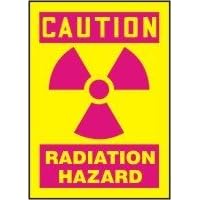Where Science Fiction Meets Reality — again…
 I can’t count the number of times I’ve seen a crew member exposed to lethal radiation in science fiction stories and the doc just loads up the anti-radiation serum and gives them a shot and everything is looking good. In movies and TV, I’m sure you’ve seen it. Just the other night we were watching a Battlestar Galactica DVD and the planet had high radiation levels and Starbuck, Helo, and Boomer just dosed themselves with the anti-radiation serum at regular intervals.
I can’t count the number of times I’ve seen a crew member exposed to lethal radiation in science fiction stories and the doc just loads up the anti-radiation serum and gives them a shot and everything is looking good. In movies and TV, I’m sure you’ve seen it. Just the other night we were watching a Battlestar Galactica DVD and the planet had high radiation levels and Starbuck, Helo, and Boomer just dosed themselves with the anti-radiation serum at regular intervals.
Now it looks like science has caught up with fiction. Ynet News has a story on Cure for radiation sickness found? by Ronen Bergman. The medication developed by Professor Andrei Gudkov – Chief Scientific Officer at Cleveland BioLabs has immediate real life implications for people who have or need to be exposed to high levels of radiation. From the article:
Gudkov’s discovery may also have immense implications for cancer patients by enabling doctors to better protect patients against radiation. Should the new medication enable cancer patients to be treated with more powerful radiation, our ability to fight the disease could greatly improve.
How the discovery came about is one of those lucky ideas that sometimes happen when the right conditions come together.
The process that led up to the medical innovation dates back to 2003, when Professor Gudkov came up with the idea of using protein produced in bacteria found in the intestine to protect cells from radiation.
Tests so far on mice and monkeys look like this is the “real deal”. If approved after being moved to the fast track, this would be a preventative medication not a cure but it would be safe and easily injected. The possible uses could be a miracle for cancer patients, workers in the nuclear industry, astronauts and space workers, and many others such as governments who wish to stockpile medications — just in case the worst case scenario of MAD comes knocking.
In fact, if this drug manages to hold up to its promise, it could mean that space flight and/or long-term habitation of space stations and on ships heading to Mars (for example) would have less of a problem with radiation that would other wise limit our chances of success. It opens up a lot of possibilities that were previously unavailable to us because of the radiation exposure the crews would face.
What are your thoughts? And please read the original article before commenting?




